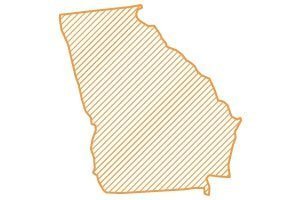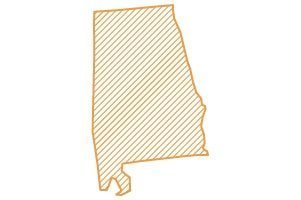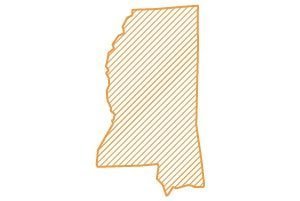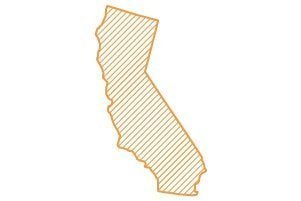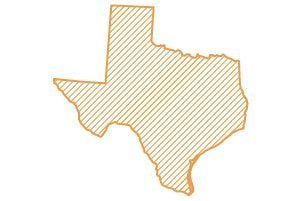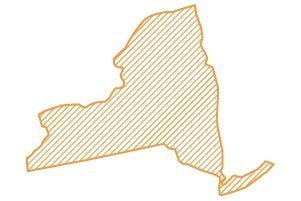Are you interested in pursuing a library science or related information science degree program in Florida in 2025? The state boasts two nationally ranked ALA-accredited Masters in Library Science (MLIS) programs, two masters in information with a focus on library media, and two M.Ed. programs that have tracks in school library media.
To see how well Florida does with its library and information science programs, keep reading. We will go over the bachelor’s, master’s, and doctoral programs offered in the state within information science. We will also go over salary and career opportunities for librarians in Florida.
Library Science Programs Currently Accepting Florida Applicants
Top Ranked Masters Programs in Library and Information Science (MLIS) in Florida
All Florida MLIS degrees are accredited by the American Library Association and are recognized nationally by both being ranked in the top 50. They also focus a great deal on the vast growth of technology and society’s relationship with it. This degree will give you the tools to learn and use new technology to help serve communities and to organize and distribute information.
Florida State University’s Master of Science in Information Degree
Florida State University offers a Master of Library and Information Science as well as a Master of Arts in Library Information. The MA degree requires additional courses, including a foreign language and liberal arts courses.
- ALA Accredited
- 36-hour degree program
- Multiple areas of study, including cultural informatics, health informatics, information organization, leadership and management, reference services, youth services, technology and networking, and web design.
- Online Program
Why You Should Review This Program:
- ALA Accreditation + Custom Tracks: One of only 64 ALA-accredited MLIS programs in the U.S., with 5+ specialization paths.
- Online Flexibility: 100% online, asynchronous; over 85% of students are part-time working professionals.
- Nationally Ranked: Ranked #13 in Library & Information Studies by U.S. News & World Report (2024).
Additional Considerations:
- Practicum Gaps: Only ~30% of graduates reported having practicum/internship experience.
- Course Consistency: Students noted inconsistent grading and expectations across instructors in reviews on GradReports and Reddit.
- Career Services Weakness: Just 54% of grads said they felt well-supported in job placement.
How to Apply:
First, check with the admissions department to see if you qualify for the graduate program and for updates on admission testing requirements. Then fill out the online application form and pay the application fee. You will also need to send in an updated resume, official transcripts, and a statement of purpose.
University of South Florida’s Master of Arts in Library and Information Science Degree
The University of South Florida’s MLIS program has been ALA accredited since 1974. The degree also provides additional courses to complete certification of education for the state of Florida for those wishing to be school librarians.
- ALA-accredited
- Multiple areas of study include information storage and retrieval, metadata, public librarianship, academic librarianship, school media specialist, archives and records management, visualization of information, information technology, human information behavior, information policy, and information literacy.
- Online program
- 39 credit hour degree
Why You Should Review This Program:
- School Library Focus: Offers a strong School Library Media track, aligned with Florida DOE certification—over 40% of enrollees pursue K–12 roles.
- Fully Online with Flexible Scheduling: Delivered 100% online; students can complete it in as little as 2 years with part-time enrollment.
- Recognized Program: Ranked among the Top 50 MLIS programs by U.S. News & World Report in 2024.
Additional Considerations:
- Limited Tech Integration: Students report few course offerings in data science, UX, or AI, compared to peer institutions.
- Advising Issues: Only 58% of students rated academic advising as satisfactory or better (USF Internal MLIS Survey, 2023).
How to Apply
To qualify, you will need either a 3.5 GPA from a graduate program a 3.25 GPA from an undergraduate program or a doctoral degree. If you don’t meet any of those, you can still get in with a 75% on the GRE, but you must also send a statement of purpose, an academic writing sample, three letters of recommendation, and an updated resume. Then, apply online and pay the application fee.
Currently this major is offered at their Tampa location. Fill out the online application form and pay the application fee. Additional documents can be uploaded to the application.
Librarian and Library Media Certification Programs in Florida
For those looking to pursue a career in a library setting but aren’t ready to commit to a full graduate-level degree, certification options are available.
Florida State University – School Librarian Leadership Certificate
If you are looking to expand on your library leadership skills, this certification could be for you. Covering areas such as technology integrations and data leadership, this program provides graduates with a strategic sense of how to better access, organize, and present data for future use.
Florida Gulf Coast University – Educational Media and Learning Certification
If you would like to pursue a certificate that allows you to achieve the Florida Department of Education’s Media Center Endorsement then this program is for you. This program was built to align with state’s requirements, and focuses on areas such as media management, collection development, media sources, references, and organization of collections.
Bachelors Programs in Library and Information Science in Florida
A bachelor’s in information science focuses heavily on technology and using technology for organizing information and creating innovative programs. It is a great degree for those wanting to later pursue a master’s in library and information science and for those who want a bachelor’s degree that will give them skills in technology, data analysis, design, and web development.
Florida State University’s Bachelor of Science in Information Technology
Florida State University has a choice of two majors within the information technology bachelor’s program: Information Technology (IT) and Information, Communication Technology (ICT). Additionally, you can minor in either of these and earn a certification in health information technology during an undergraduate program. Library and information science focuses a lot on technology and keeping up with how technology affects how society receives its information. Therefore, both of these majors are useful for those who wish to go on to get their MLIS and work as an information science professional or librarian.
How to Apply
Apply online to their undergraduate program. You do not need to apply to the school of science separately. You may need to take core classes first before starting on your track for information science.
University of South Florida Bachelor of Information Science
This undergraduate program offers a variety of skills and education on technological advances, organizational skills, web development, and analyzing how societies interact with information and technologies. They also offer a 12-credit-hour minor in intelligence studies.
How to Apply
Doctoral Programs in Library and Information Science in Florida
Florida is also a great state to earn a Ph.D. in library and information. An information doctorate will allow you to be a more credible writer and researcher in the fields of librarianship and information science. A doctorate in information will also provide more opportunities for presenting research at national and international conferences. Additionally, to be a professor of library and information science, you must have a Ph.D. to teach library and information science at most colleges in the U.S.
Florida State University PH.D. in Information
Florida State has a school of information (also called iSchool). Its MLIS degree is ALA accredited, and a doctorate in information from here is great for someone who holds an MLIS degree and wishes to do more within the field of research and analytics of society and its relationship to technological advances.
FSU’s iSchool doctoral students travel across the nation to present at ALA conferences, the ACM CHI Conference on Human Factors in Computing Systems, and the Association for Information Science and Technology conference.
How to Apply
Currently, the GRE test scores are waived. So, to apply, just follow the link online for the online application and talk to an admissions counselor to see if you qualify.
Florida Library Science Degree Programs
The following list includes library and information science programs that are available in the state of Florida. The list includes MLIS programs, PhDs, and Bachelor in Library and Information Science programs. The list notes whether the GRE is required for admission into the graduate programs, as well as whether or not the programs are accredited by the American Library Association (ALA).| School Name | City | State | Program Level | Program Name | Accreditation | Program URL | GRE Required? |
|---|---|---|---|---|---|---|---|
| Florida State University | Tallahassee | Florida | Bachelors | Bachelors in Library Science | ALA | https://ischool.cci.fsu.edu/ | No |
| Florida State University | Tallahassee | Florida | PhD/Doctoral | PhD in Library Science | ALA | https://ischool.cci.fsu.edu/programs/grad-programs/phd-in-information/ | Yes |
| Florida State University | Tallahassee | Florida | Masters | Mastesr in Information | ALA | https://ischool.cci.fsu.edu/programs/grad-programs/master-of-science-in-information/ | Yes |
| University of South Florida | Tampa | Florida | Bachelors | Bachelors in Library Science | ALA | https://www.usf.edu/arts-sciences/departments/information/graduate/ma-library-information-science/ | Yes |
| University of South Florida | Tampa | Florida | Masters | Masters in Library and Information Science | ALA | https://www.usf.edu/arts-sciences/departments/information/graduate/ma-library-information-science/ | Yes |
How to Become a Librarian in Florida
You will need a Master of Arts in Library and Information Science (MA) or a Master of Science in Library and Information Science (MS) from a program accredited by the American Library Association. Additionally, most librarian positions want years of experience in a library setting.
Below are library jobs that are common in Florida, along with the job qualifications:
Library Technician or Assistant: The full-time position requires a library technician or assistant to have at least a high school diploma and, preferably, experience working in the library.
Entry-Level Librarian/Youth Services Librarian: In Florida, experience is almost always necessary, and you must hold an MLIS, MLS, or MA in library and information science from an ALA-accredited program.
Library Management and Administration: These librarians are the managers and administrators in the library or in a system of libraries. These positions will require an MLIS or master of arts in library and information science from an ALA-accredited program and at least two years of experience within the library system. For levels of librarianship that are managing more employees, experience in supervising is required.
Library Media Specialist: To become a media specialist or school librarian, you will need a master’s in library media from a program certified by CAEP. However, some MLIS programs include certification in education with the state of Florida.
What Else Can You Do with a Library Science Degree in Florida?
There are 48 public libraries just in Tampa and Miami, Florida, alone. Additionally, Orlando is a leader in public library systems and is home to the Dorothy Lumley Melrose Center for Technology, Innovation & Creativity which has a video, audio, and photo studio; a simulation lab; research and collaboration space; and much more. Additionally, Florida focuses on preserving information and archives about its history and for its Big Cypress National Preserve.
One of the top ten reasons people move to Florida is for the thriving economy and the numerous jobs available there. They are ranked the fourth best economy among the states. This is partly due to the number of tourists, but it’s also because Florida is home to some of the largest corporations with numerous types of job opportunities.
If your focus in library science is research, data collection, and information organization, Florida is a great place for you. They have BioFlorida which is an organization that represents 6,700 research organizations and other establishments relating to life sciences. Additionally, if you have a passion for aviation and space research, Florida is a leader in global aerospace and is home to SpaceX and the United Launch Alliance.
If you enjoy archiving and promoting history and culture, there are museums and archives librarians can work for in Florida. Two of their largest museums and archives are the Meek-Eaton Black Archives and the Richard and Pat Johnson Historical Museum.
Additionally, there is a multitude of digital research and design careers available as well. Check out the Florida Library Association career page for updated job listings.
Salary Opportunities
According to the U.S. Bureau of Labor Statistics, the median wage for librarians in Florida is $58,740 annually. In the cities of Miami, Fort Lauderdale, and West Palm Beach, the median wage is $62,260; in Gainesville, FL, the median salary is $59,220 annually; and in Naples, Immokalee, and Marco Island, the median salary is $81,550 annually.
Additional Resources:
For more information on Libraries in Florida visit https://dos.myflorida.com/library-archives/ and https://www.flalib.org/fla-job-board
For more information about librarianship and Library Science visit ala.org.
For more information about The School Library Media Specialist Degree and Certification visit https://www.ala.org/ala/aasl/

